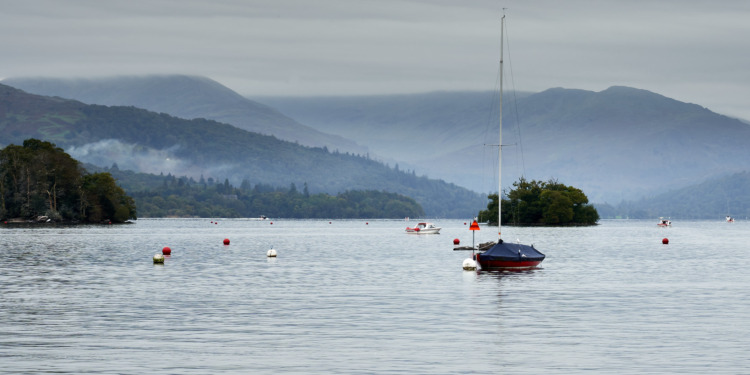The Lake District National Park, named a UNESCO World Heritage site in 2017, is an area of outstanding natural beauty that attracts over 16 million visitors each year.
However, it is believed that Windermere, the largest lake in both the National Park and the country, is heading towards “ecological collapse” in light of the recent inundation of toxic blue-green algae.
What is blue-green algae?
This organism is more accurately described as cyanobacteria, and it is nothing new.
In fact, it originated around three billion years ago and played a significant role in the creation of other life through the oxygenation of the earth’s atmosphere. Its many species can now be found across the globe in a variety of freshwater habitats like Windermere.
Cyanobacteria require high concentrations of both phosphorus and nitrogen to multiply and produce “blooms” — areas of high visible concentration of the algae.
(1/2) @EnvAgencyNW has confirmed sightings of blue green algae in #Windermere #Coniston Water #Urswick Tarn and #Killington.
The blooms pose a risk to human and animal health. Be prepared by checking the EA's online map of known locations before you or your pet go swimming… pic.twitter.com/gF2ChFv2vB— South Lakeland DC (@SouthLakelandDC) August 16, 2022
Increased levels of phosphorous in Windermere can be traced back to a number of sources.
One of the largest contributors— believed to be responsible for around 40% of the accumulating phosphorus — is United Utilities. This company pumps thousands of litres of untreated wastewater into the lake whenever their storage tanks become overfilled with rainwater, as typically occurs multiple times a year.
Matt Staniek, zoologist and founder of the Windermere Lake Recovery Community, also places blame on agricultural run-off and the approximately 1,900 unregulated private septic tanks in the area.
Furthermore, climate change is playing a role in the influx of this toxic algae.
As the Freshwater Biological Association (FBA) head of science Louise Lavictoire states, “climate change is creating the warm, stable weather conditions that the algae likes.”
Related Article: Climate Change Is Making Heatwaves at Least 10 Times More Likely
Over the past 70 years, the mean temperature of the water’s surface has risen by 1.7 degrees celsius.
Coupled with this, recent winters that have been milder than average have meant that the bacteria was able to survive in the deeper areas of the lake as it couldn’t in the past, allowing it to return in such vast quantities this summer.
What problems can toxic algae cause?
Whilst some cyanobacteria is harmless, a sample taken from the lake by Staniek reportedly exceeded the World Health Organisation’s guidelines for anabena, a plankton that Staniek states can produce toxins as dangerous as cobra venom.
I got a Cyanobacteria bloom tested as I felt this wasn’t being taken seriously enough.
It exceeded WHO guidelines for levels of Anabaena. On a weight for weight basis the neuro and hepato toxins potentially produced are as toxic as cobra venom.
Windermere is not safe ⬇️ pic.twitter.com/7XT7ollcMn
— MattStaniek (@MattStaniek) August 22, 2022
In humans, harmful algal blooms are known to cause rashes following skin contact as well as vomiting and fever if ingested.
Since it is impossible to know which blooms are noxious without laboratory testing, the sweeping guidance is that people and pets avoid the areas of the water where blooms are visible.
Regarding its impact on lake life, the bacteria is known to consume oxygen and block sunlight, resulting in a reduction of plant growth in the water and dwindling numbers of fish.
As Staniek claims, “invertebrate and fish numbers are plummeting, with salmon and trout in decline and the Arctic Char are now believed to be extinct in the south basin of Windermere.”
What can we do about it?
Although this ecological cause for concern is one that requires action from the companies most to blame — namely United Utilities — there are also steps that the general public can take when visiting the Lake District to help protect Windermere and its surrounding lakes.
Advice includes buying phosphate-free detergent to take with you and using the Check, Clean, Dry method when leaving a body of water to ensure no bacteria is being spread to new areas.
There is also a petition available— already with over 143,000 signatures — started by Matt Staniek to pressure the government into taking immediate action to protect the lake and prevent further pollution. As he writes, “this is the only way we will be able to stop Windermere from dying.”
Editor’s Note: The opinions expressed here by the authors are their own, not those of Impakter.com — In the Featured video: Lake Windermere two years ago. Featured Photo Credit: Barnyz.










